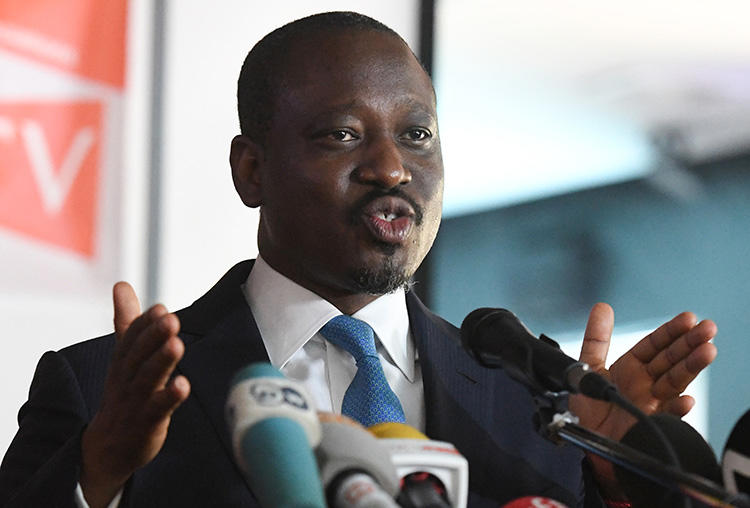Abidjan, June 6, 2019–The Committee to Protect Journalists today called on Ivory Coast politician Guillaume Soro to withdraw a criminal complaint against Sidi Tehra, director of the privately owned weekly L’Essor Ivoirien, and champion the reform of the country’s penal code to ensure that journalists are not imprisoned for their work.
Tehra told CPJ that the politician accused the journalist on May 16 of defaming him by spreading false information. The complaint is related to an article in the May 6-12 edition of L’Essor Ivoirien, according to Tehra, a copy of court papers posted on the Facebook page of the National Syndicate of Press Professionals of Côte d’Ivoire, local media reports, and the syndicate’s secretary-general Guillaume Gbato. The article alleged that Soro was distributing arms in the north of the country, according to the documents.
Soro is a former prime minister who today announced his bid for the 2020 presidency, according to reports.
“Guillaume Soro should show that he is a champion for democracy and a free press by withdrawing his legal complaint against L’Essor Ivoirien director Sidi Tehra and working to reform Ivory Coast’s penal code to end the criminalization of journalism,” said CPJ Africa Program Coordinator Angela Quintal in Johannesburg. “Soro should recognize the regressive implications his actions have for press freedom and should consider other remedial action if he feels aggrieved.”
Tehra was summoned to a hearing in the economic capital, Abidjan, on May 31, but the case was postponed for further information, Gbato, who was present in court, told CPJ. The court order names Tehra and “Bill Terrasson,” which is an alias the journalist uses. The next hearing has not yet been scheduled and Tehra is not under any restrictions, Gbato told CPJ.
A prosecution document, viewed by CPJ and dated May 29, referenced Article 90 of the Ivorian press law, which covers defamation and carries a maximum fine of 3 million West African francs (US$5,100); and Article 173 of the criminal code on the spread of false information, which carries a maximum penalty of three years in prison and a fine of 5 million West African francs.
Soro’s spokesperson Moussa Touré told CPJ via messaging app on May 28 that prosecuting Tehra “forms part of [Soro’s] constitutional rights.”
In a May 20 Facebook post, Gbato said that the union opposed Tehra’s prosecution and emphasized that regulatory bodies were better placed to resolve the issue.
